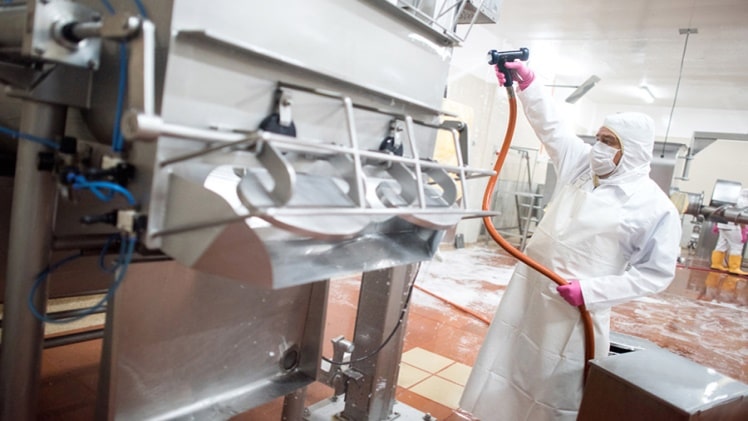The food and beverage industry covers everything from manufacturing to service at a restaurant, and everything in between. From natural ingredients to consumable products, food goes on a wild journey and comes into contact with countless points. Along the way, each part of the wheel is responsible for ensuring the best food safety and hygiene practices are implemented and followed.
Working with Machinery
Whether it’s a food processing plant manufacturing products or a restaurant kitchen creating delicious masterpieces, there’s a lot of machinery used in the food and beverage industry. If machinery isn’t used or cared for properly, it can cause serious issues including food contamination.
Safe and hygienic usage of machinery starts with staff training. This tackles machine operation, cleaning, and basic maintenance tasks. For example, in a brewery, there are a lot of pipes transporting liquids at various stages of production. If machines aren’t cleaned or maintained properly, it can lead to deficient products. Luckily, issues can be identified easily by learning about the different types of sight glasses, which allow you to look through piping systems.
Proper Cleaning
All businesses involved in the food and beverage industry have a responsibility to keep all areas clean, and that includes everything from work surfaces to employees. In food processing plants, each area needs to be kept clean to prevent contamination. Additionally, if employees and equipment are moving from one place to another, it needs to be completely sterilized first.
As well as implementing a ‘clean as you go’ policy in all areas, daily, weekly, and monthly cleaning schedules need to be generated to make sure everyone is on the same page. As well as this, a checklist allows you to track and sign off on completed jobs, which is essential for when health visitors come around.
Proper Chemical Storage
Whether they’re used for cleaning or other tasks, the food industry relies on various chemicals. However, they have a responsibility to use them and store them properly. Fortunately, there’s a universal system in place called COSHH (Control of Substances Hazardous to Health). Essentially, this means that all employers are required to prevent unnecessary exposure to hazardous substances.
To make sure chemicals are used properly, all staff members need to be trained in the dangers of each substance. Typically, this is done regularly to test knowledge and is carried out by learning the different symbols. Additionally, companies supply PPE (Personal Protective Equipment), which protects the skin and lungs from chemicals and fumes.
Food Handling
Foods need to be handled correctly to avoid bacterial growth and illnesses. For example, defrosting meat needs to be placed into the fridge, which will allow the temperature to increase gradually while not going over 40°F. Before staff pass their probation period, they will likely need to complete a Food Safety Level 2 course.
Food safety and hygiene isn’t easy task to accomplish, but it’s essential for keeping everyone safe. No matter what section of the industry, failure to comply with food safety and hygiene regulations will result in lawsuits, public humiliation, and likely closures.

